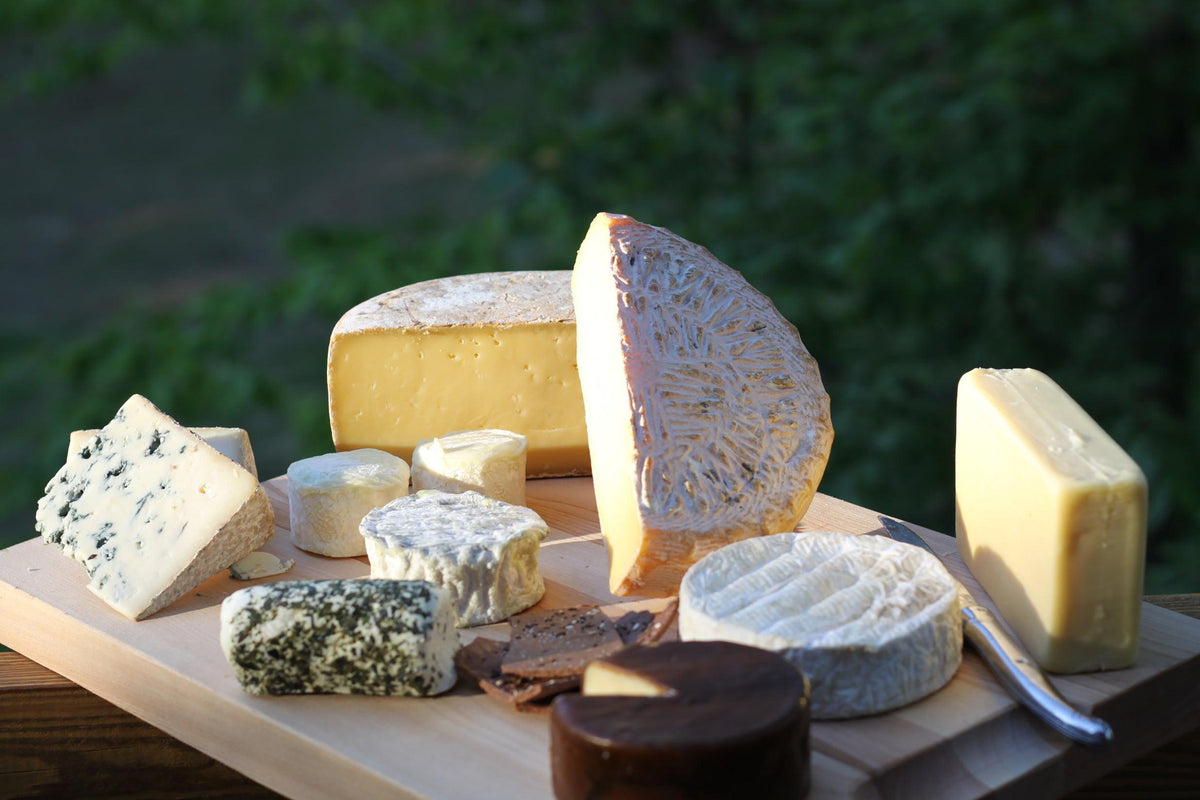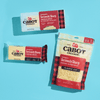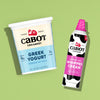
Grate Questions: Why Does Cheese Smell?
There are so many ways to enjoy cheese. Melted in all its ooey, gooey deliciousness, paired perfectly with other foods, or enjoyed alone, the possibilities are endless. There is really no reason to turn your nose up to cheese…or is there?Let’s be honest, some cheeses don’t smell all that appetizing. But why does cheese smell bad? To understand the science of the stink, a good place to start is the art of cheesemaking.

All cheeses are made with four basic ingredients; milk, starter culture, rennet, and salt. The process begins by heating milk. A starter culture of bacteria is then added to ripen the milk. During this process milk sugar is converted into lactic acid. Next the rennet is added. Rennet is a set of enzymes that act on the proteins in milk to form solid curd. The amount of rennet added varies depending the firmness of the curd needed to create a certain type of cheese. The addition of salt enhances flavor, slows the acid development, and removes additional moisture. How these basic ingredients are brought together creates all the wonderful varieties of cheese, including the sensory confusing smelly cheeses.
To sniff out the reason why some cheeses have an unpleasant scent, consider the starter culture. The bacteria that make up the starter culture influence the taste, texture, and smell of the cheese, including that unfortunate stinky odor characteristic of some cheeses. Cheeses considered the stinkiest are typically “washed-rind”. These cheeses are pressed into shape and “washed” to prep for aging. Ironic that something “washed” results in such a stinky odor; but consider that the solution used is typically a salty brine or alcohol like brandy or beer. With repeated washings, the cheese will develop certain flavors and smells. Additionally, the washed rind cheeses are perfect for microbes. The bacteria and yeast colonize the cheese rind resulting in a distinctive scent. Some cheeses are aged for many months. The extra aging often intensifies the cheese's aroma- but also the delicious flavor.

Among the cheeses that stink, Limburger is one of the most famous. The bacterium used to create Limburger cheese is Brevibacterium linens or b.Linens. What does limburger cheese smell like is a common question. Well, b.linens is the same bacteria responsible for body odor. So, the cheese has been described as smelling like stinky feet or dirty gym socks. Yummy?! Epoissesa is also a notoriously stinky cheese. However, while you may be tempted to hold your nose around these cheeses, they exist because there is a demand. People enjoy the delicious and complex nutty, woodsy, or buttery flavor.
The sensory experience can be confusing. How can something so pungent in smell be so wonderfully delicious? The curious phenomenon is referred to as "backward smelling." Scents enter the nose where the compounds stimulate receptors to identify the scent. When food is eaten, aroma compounds are released in the mouth and waft up the back of the nose. The same receptors in the nose are involved in recognizing the scent; however, this time the brain combines the smell with the creamy taste on the tongue, creating a perception that the cheese is flavorful and delicious. Yummy!!
People around the world love cheese. In America, charcuterie boards featuring cheese are widely popular, as are the usual favorites that are topped with cheese- burgers, nachos, crackers, fries. Perhaps “stinky” is just a term of endearment for a food most people adore.

Cheese Tasting Exploration
Want to go on a smelly tasting exploration of your own? Follow your nose and let’s go.
- Assemble a tasting with a variety of cheeses
- Before sampling a cheese, write down or discuss what you expect the cheese to taste like based on what you see and smell.
- Review aroma words sometimes associated with cheese:
Celery
Citrus
Coffee
Cut grass
Fudge
Garlic
Hay
Horse
Leather
Melted butter
Mint
Mushroom
Onion
Peanut
Pepper
Rancid milk
Rotten egg
Smoke
Soil
Toasted bread
Vanilla
Yogurt
Wet dog
- Now sample a bite. Did the taste/ flavor meet, exceed, or totally contradict your expectation? Does the aroma/ flavor change the longer the cheese lingers in your mouth?
- Sample these same cheeses with other foods- fruits, crackers, nuts. Did the flavor profile or aroma of the cheese change for you?
Phew—pew! The world of cheese is a vast and aromatic journey, isn't it? Whether you're a fan of good 'ol mild and creamy or something more pungently stinky, there's one thing we can all agree on: cheese is a beloved culinary delight. So the next time you smell something a little funky, embrace the diversity of scents and flavors and let your taste buds discover something scent-scationally new. And guess what? Thanks to our trusty friend "backward smelling," you might surprise yourself and find a new favorite.













